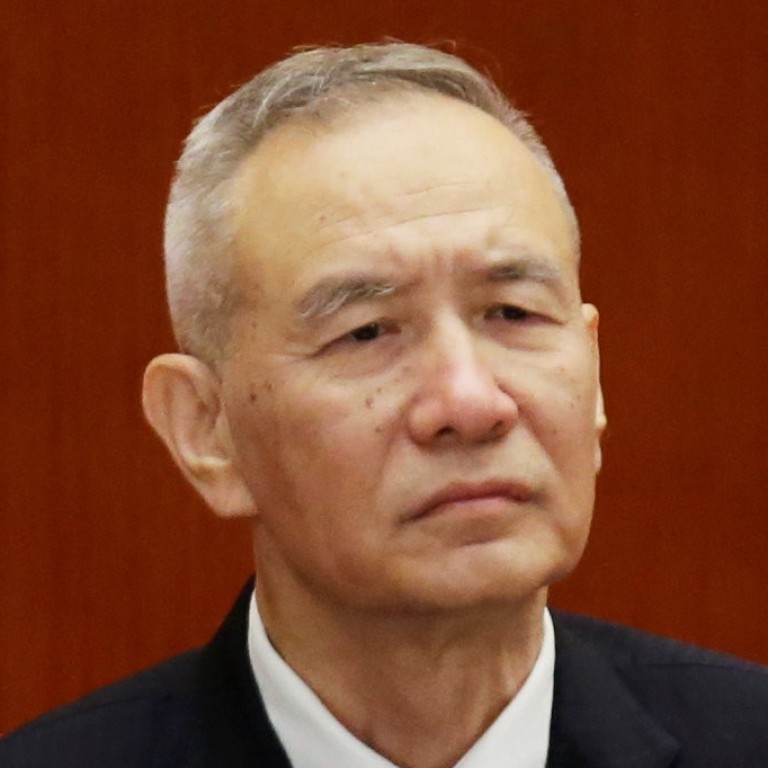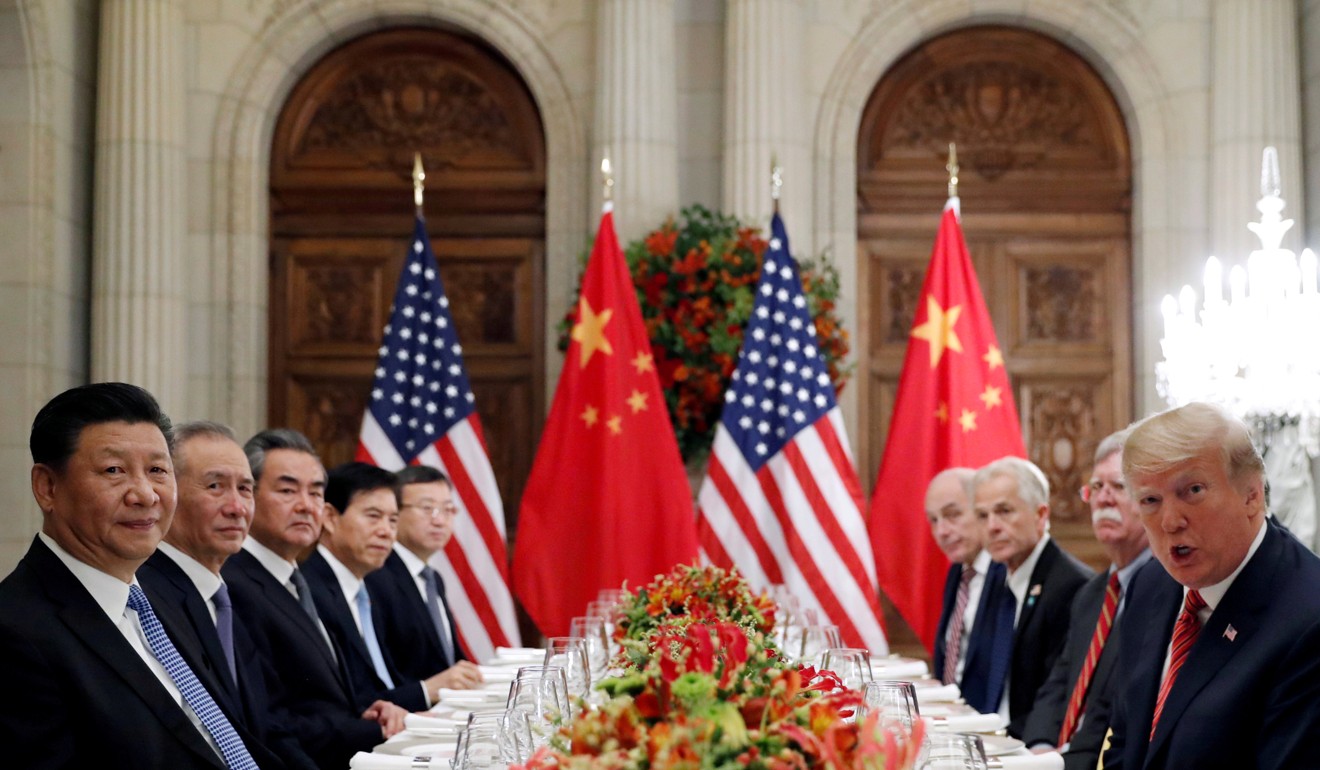
Exclusive | China’s Vice-Premier Liu He accepts invitation to visit Washington this month for talks to end trade war
- A Chinese delegation will visit the United States on January 30 and 31
- Liu is expected to meet US Trade Representative Robert Lighthizer and Treasury Secretary Steven Mnuchin in hopes of progress toward a trade deal
Chinese Vice-Premier Liu He has accepted an invitation to lead a delegation to Washington at the end of this month with the purpose of reaching a deal to end the trade war, according to a source who has been briefed on the arrangement.
Liu, who is overseeing China’s trade negotiations with the United States, is expected to meet US Trade Representative Robert Lighthizer and US Treasury Secretary Steven Mnuchin during the two-day visit, the source said.
The Office of the US Trade Representative (USTR) didn’t immediately respond to a request seeking comment.
“It’s a positive development to show that enough progress was made in talks earlier this month,” said Nicholas Lardy, a senior fellow at the Peterson Institute for International Economics, a Washington-based think tank. “But the chance is still slim that a complete resolution will be reached in this round.”

The fact that the next round of talks is scheduled to take place before the Chinese New Year, when the country takes off for a week in celebration, suggested “that both sides tried to take advantage of the momentum in order to move ahead,” Lardy said. The plans also were made as parts of the US government remain shut down amid a stalemate between US President Donald Trump and Democrats in Congress about funding for a wall along the Mexican border.
Since the two sides wrapped up talks earlier this month, China has made a number of concessions, including addressing intellectual property theft and lifting the maximum in foreign ownership in the financial services sector.
“The most likely outcome [in this round] is that the US accepts all the concessions China has made and takes off the tariffs for a period of time to allow China time to enforce on its promises,” Lardy said. “But most importantly, the US ultimately needs to implicitly accept that China was never going to eliminate ownership restrictions by foreign owners in certain sectors such as media.”
Liu, the top economic aide to President Xi Jinping, made a surprise appearance on the first day of the negotiations in Beijing.
After the talks, China’s Ministry of Commerce said in a statement that they were conducted in a “comprehensive, in-depth and detailed manner” that “laid the foundation” for the two sides to solve their long-standing problems.
The USTR issued a statement saying that the sides had touched on issues of “forced technology transfer, intellectual property protection, non-tariff barriers, cyber intrusions and cyber theft of trade secrets for commercial purposes, services and agriculture”.
Also included was China’s pledge to purchase a substantial amount of agricultural, energy, manufactured goods and other products and services from the US.
Before the negotiations wrapped up, Trump tweeted that “talks with China are going very well!”
It will be Liu’s first visit to Washington since May. Liu told Chinese state media after that trip that Beijing and Washington had reached a consensus on “not fighting a trade war”, but the relationship quickly soured.
The US introduced the first round of punitive tariffs on Chinese products in July, which triggered immediate retaliation from Beijing, starting a trade war that roiled global markets and dampened economic outlooks.
The USTR on Monday said operations including “trade negotiations and enforcement” would continue despite the partial government shutdown.
Liu’s trip is also the latest leg in Beijing’s efforts to flesh out the agreements reached by Trump and Xi on the sidelines of the G20 summit.
The two presidents met in Buenos Aires on December 1 and agreed a 90-day “truce” period, during which they would conduct negotiations.
An escalation of US tariffs on Chinese goods was postponed. But if no deal is reached, the US will increase the tariffs on US$200 billion of Chinese products from 10 per cent to 25 per cent.
Wei Jianguo, a researcher at the China Centre for International Economic Exchanges, said he was optimistic the two countries could make progress toward reaching a deal during the late January talks.
“Both sides have shown sincerity during the vice-ministerial talks, which went very well, so this has paved the way for Liu going to Washington for the next round of talks,” said Wei, a former commerce vice-minister.
Wei said that Trump’s unpredictability made a deal far from certain, but that the president may need to claim a victory to help alleviate the dual domestic pressures from the stock market slump and the partial government shutdown.
He added that a breakthrough would benefit China’s economic performance in 2019, since it may help introduce measures to reform its state-owned enterprises, reduce government subsidies and improve market access for foreign firms.
Tommy Wu, senior economist at Oxford Economics, said confirmation of Liu’s visit has raised expectations.
“Even though this is positive, I still don’t think a deal can easily be made in a short period of time,” he said. “We are unlikely to see negotiations completed before March 1, but because of the progress expected to be made in these talks, the US will likely postpone the tariff hike again.”
Additional reporting by Jodi Klein and Owen Churchill



